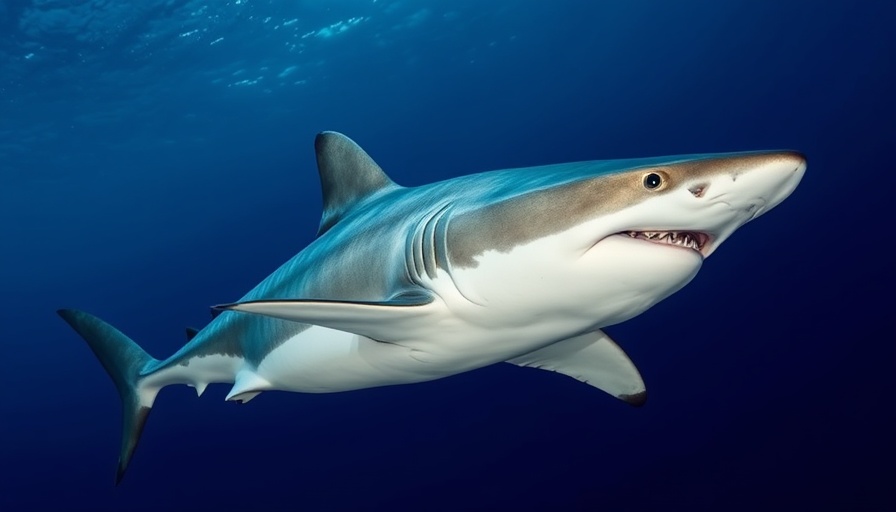
The Pardoning of Divers: A Controversial Decision
In a surprising turn of events, former President Donald Trump granted full pardons to John Moore Jr. and Tanner Mansell, two Florida shark divers convicted of theft for their actions in 2020, which involved releasing 19 sharks and a giant grouper from a NOAA research line. This decision raises critical questions about the implications of environmental regulations and how intent factors into legal dilemmas.
The Events that Led to the Conviction
The incident occurred three miles off Jupiter Inlet when Moore and Mansell, engaged in their shark-diving charter business, encountered a longline fixed in the ocean. Believing it to be illegal, they cut the line and freed the marine animals. What they did not realize is that the line was part of a licensed NOAA research operation. Despite their good intentions, federal prosecutors charged them with theft, leading to a jury conviction in 2022.
Public Reaction and Conservationists' Perspectives
The case has sparked a wave of reactions from the public, particularly among conservationists who argue that the legal system was too harsh on the divers, who acted with a heart for marine protection. Environmental advocates voiced that the charges dismissed the true purpose behind the divers' actions, which demonstrated a commitment to wildlife welfare strong enough that it overshadowed the legality of the longline.
Critical Questions Remain
Despite the pardons, several questions linger regarding the transparency of federal environmental enforcement. For instance, why was the longline not clearly marked as part of a research project, and could the trial have taken the divers' intent into consideration more rigorously? These unanswered questions highlight potential gaps in communication between federal agencies and the public, particularly in matters concerning natural habitats.
Comparisons with Other Environmental Cases
Historically, cases involving environmental regulations often surface debates about the balance between conservation efforts and regulatory enforcement. For instance, similar situations involving unintentional breaches of environmental law have occasionally resulted in calls for reforms and clarifications of regulations to prevent misunderstandings. This parallel underscores the continuing need for effective dialogue within the environmental sector.
Future Implications for Marine Conservation
The pardoning of Moore and Mansell could set a precedent that influences how similar cases might be handled in the future. It fosters a conversation about the importance of intent in environmental law enforcement, potentially leading to adjustments in how such laws are communicated and enforced. The implications of this case may encourage legislators to re-evaluate the lines between legal enforcement and the ethical treatment of marine life.
The Big Picture: Environmental Enforcement and Legal Frameworks
As the conversation around this case continues, the broader implications of environmental enforcement come to light. The treatment of individuals like Moore and Mansell exposes a divide between strict legal adherence and the fundamental principles of conservation. This incident emphasizes the importance of intent in legal proceedings, especially concerning passionate individuals attempting to protect their environment when they encounter regulations that may not be clearly defined.
Conclusion: A Call for Clarity in Environmental Regulations
Ultimately, this case serves as a wake-up call for both legal and environmental advocates to address the complexities surrounding conservation laws. Future legal frameworks would benefit from clearer communication to ensure that those who act out of care for the environment are not unjustly penalized. As this story unfolds, it presents an opportunity for constructive dialogue aimed at refining our approach to environmental laws while cultivating a community that works in tandem to protect marine ecosystems.
 Add Row
Add Row  Add
Add 



Write A Comment